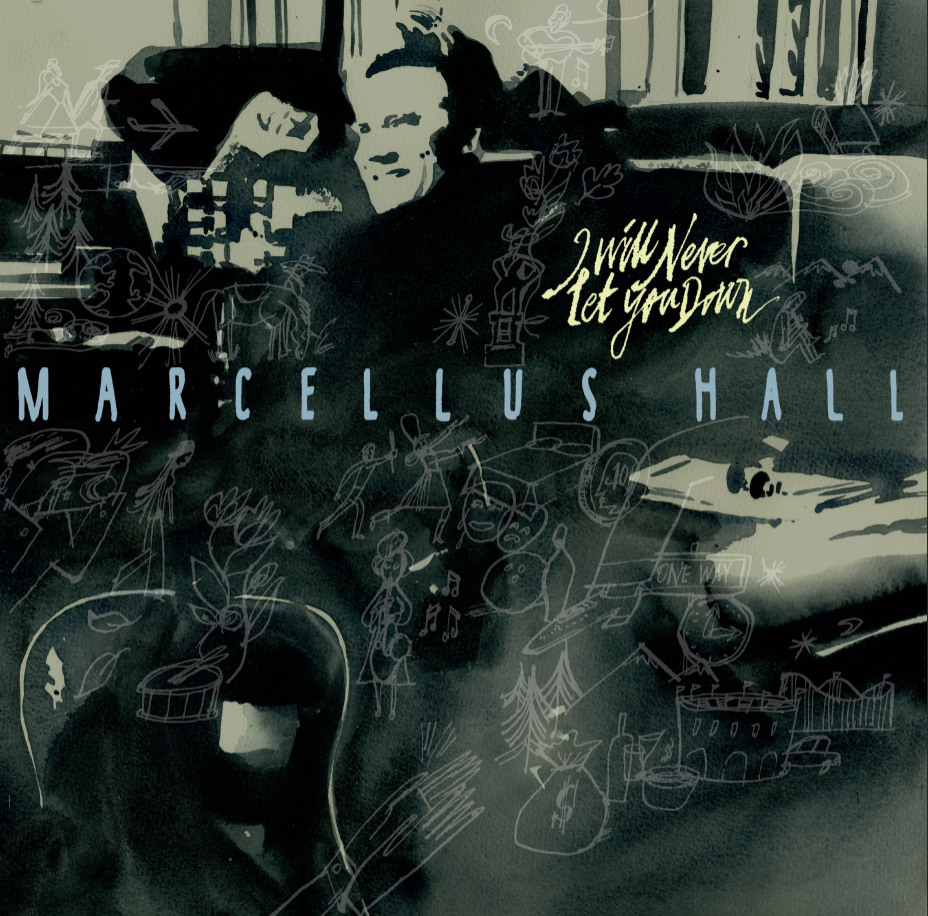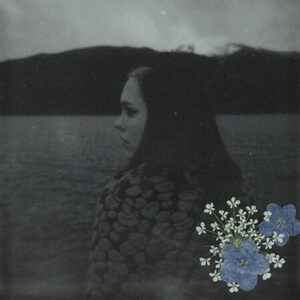
Marcellus Hall
I Will Never Let You Down
Gutfeeling
Let me begin by expressing how grateful I am Marcellus Hall continues to write and sing songs, irrespective of his collaborators. In September of 1996, I met and interviewed Hall and fellow Railroad Jerk bandmate Tony Lee. The location was Alt Coffee, Lower East Side, NYC. Folks were wired and working on whatever early generation Mac was popular. I learned about the click and clack of the Railroad Jerk sound. That was the ‘90s. To my ears then and now, Hall has been attuned to American musical roots since first such was recorded. He is informed, but not boxed-in.
Hall is still making distinctive music, though his lead role in Railroad Jerk (then on Matador) segued to his lead role in White Hassle, other ensembles, and now to his third solo recording I Will Never Let You Down. I must mention, paraphrasing a 28-year-old memory, that I had expressed to Hall over too many coffees how obviously steeped in warped indie blues he must have been. But I wanted that. The Jon Spencer Blues Explosion were interchangeably played in my Walkman… way back… way back. Hall mines American music, owing more to Dylan and The Band or lesser-knowns from the Harry Smith anthologies. But amplified. Informed by The Fall’s repetition. Citified. Then and now, again akin to the JSBX, there’s a self-referential grin, hoot, and holler in Hall’s compositions. And like his drawings for The New Yorker, lyrics are impressionistic yet identifiable sketches. Imprints of the Big Apple with an eye for the red dress, the subway clamor, and the breezes through the five boroughs. A poly/cotton blend of personal and observational. Percentages vary.

Opener “Behind the Stadium” is peppy, Hall’s see-sawing electric guitar shape in concert with Damon Smith’s melodic bass and Mike Shapiro’s snare pops and a Farfisa. Hall sings with cheer — nostalgically? An oblique but perfectly delivered couplet like “so inappropriate and problematic / there was no more room for idiosyncratic” is followed by “you don’t know where you’re going if you don’t know where you come from / I was skipping rope, behind the stadium — with you.” Bumping contemporary cultural language concerns against a nod to the idiomatic and hopeless romanticism is fun to sing along with. Hall’s message (I should have learned my lesson in ‘96) is perhaps about slowing down 21st century roller coasters, i.e., “If you cry about a nickel you will die about a dime / someone I know needs to have a little down time” (White Hassle, 2003). Or, lean in and admit life is sweet.
The also catchy “One Night” drops a scintilla of East L.A. polyrhythms consistent with spoke/sung observances of maybe dropped iPhones, couples having a laugh, a protagonist wishing for “just one ray of sunlight on a road without an end” and in the shuffle, this boogie, Hall’s layered guitar tracks give way to his harmonica playing. I’d forgotten how often he employed the instrument with RRJ. I’d like to write a quotable description of Hall’s vocals and his Minnesota roots without invoking you-know-who, because it’s moot. But if I had to tell you why I’ve followed his music for several decades, my first answer would be his singing. So there.
“Our Devices” is a bluntly, sing-songy ditty chastising instant gratification but with an alternative: clear calls for eye-to-eye conversation. Perhaps corny if you’re 20 years old. Not so corny to those whose first kisses preceded dial-up. The singular mariachi-style trumpet blasts aren’t for the Second Coming but do punctuate a spiritual vacuum endemic in this age. Hall’s acoustic guitar is closely mic’d, the fret buzz satisfying.
“You’ve Got a Friend,” the Carole King/James Taylor standard, is rather straightforward. A takeaway, besides how lovingly rendered with a few twists and turns, is Hall’s consistency addressing being centered. What lasts in storms and when the rainbow arrives. Seems like he’s been reading Didion, Chesterton, and flipping through Archie’s comic books.
Various songs are augmented by handheld percussion instruments. Hall overall sounds optimistic — older, wiser, not resisting — where quite much Railroad Jerk output, if not the country blues, notably reflected a hybrid of art school and at least affected urban angst. Familiarize yourself, IMO.












